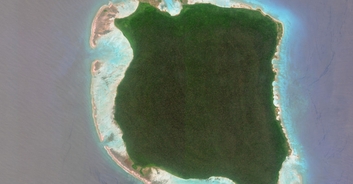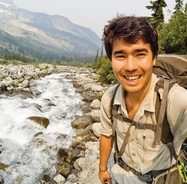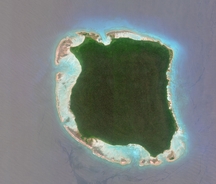An American missionary who has visited an isolated Brazilian tribe has potentially exposed them to fatal diseases to which they have no immunity. Now a charity claims that the missionary in question could be charged with genocide if the pathogens he has exposed the indigenous people to end up wiping them out.
Steve Campbell travelled to land occupied by the Hi-Merimã people in December of 2018. The Hi-Merimã live along the Piranhas River, between the Juruá and Purus Rivers, in the Amazon rainforest, and have never had any contact with the outside world. They've been so isolated that something as quotidian as the common cold could prove deadly.
According to reports from Brazilian newspaper Folha de Sao Paulo, Campbell allegedly stumbled into their lands by accident while living with indigenous people from the neighbouring Jamamadi tribe. Funai, Brazil's department of indigenous affairs, is now investigating Campbell and is prepared to arrest and charge him if he is found guilty of any wrongdoing. Commenting on the potential charges, a spokesman for Funai stated: "It’s a case of rights violation and exposure to risk of death to the isolated indigenous population. Even if direct contact has not occurred, the probability of transmission of diseases to the isolated is high."
On social media, the reaction to Campbell's exploits has been condemnatory. On Twitter, one person wrote: "Missionaries always sticking their noses where they don't belong all in the name of converting the locals."
This incident comes just a few months after another American Christian missionary was killed while trying to contact an isolated tribe. 27-year-old John Chau was slain by the North Sentinelese tribespeople. Survival International director Stephen Corry stated at the time that: "This tragedy should never have been allowed to happen. The Indian authorities should have been enforcing the protection of the Sentinelese and their island for the safety of both the tribe and outsiders."
He added: "Instead, a few months ago the authorities lifted one of the restrictions that had been protecting the Sentinelese tribe’s island from foreign tourists, which sent exactly the wrong message, and may have contributed to this terrible event. It’s not impossible that the Sentinelese have just been infected by deadly pathogens to which they have no immunity, with the potential to wipe out the entire tribe."
The Hi-Merimã tribe is estimated consisted of more than 1,000 people, and have occasionally attacked other tribes. They have thus far avoided prolonged contact with modern society and neighbouring natives. They are considered protected, and the Brazilian government takes any threat to their culture or way of life extremely seriously.
Only time will tell whether Campbell's presence will have an effect on the Hi-Merimã's population after all, but the story only serves to highlight just how vulnerable people like them really are to modern diseases.




